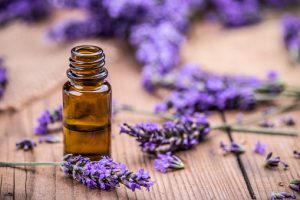
Essential oils have been around for thousands of years and are oils that have been extracted from botanicals. These are highly concentrated and are a pure form of the oils. Due to the process of extracting such oils and the limited quantity that is extracted from each botanical, essential oils can be quite pricey.
Sleep problems are on the rise, and although a person can easily take a medication to improve their sleep, they are often habit forming and addictive. Instead, essential oils offer a more natural and less addictive way to promote sleep and relaxation.
Although overall research on the benefits of essential oils is limited, it doesn’t take away from the fact that people are obtaining relief through aromatherapy . For example, lavender and clary sage are known to promote relaxation and sleep.
Essential oils for sleep: What experts say
As previously mentioned, the research behind the benefits of essential oils is limited, but it is widely accepted that lavender oil can help promote relaxation and improve sleep. In a large study, researchers assessed the benefits of lavender oil on 31 young and healthy participants. The study found that lavender increased the amount of slow- and deep-wave sleep.
An alternative study found that clary sage also boosted relaxation when used in a diffuser. It helped women undergoing urodynamic examination relax more effectively.
How to use essential oils for sleep
There are different ways you can use and benefit from essential oils. Try applying diluted essential oils to the soles of your feet, palms, and wrists prior to bed. It’s important that, for most essential oils, you dilute them with a carrier oil like coconut, castor, or olive oil, because applying the essential oil directly onto the skin can lead to irritation. To make the right combination, you should use one teaspoon of carrier oil for one drop of essential oil.
Another way to use essential oils is through a diffuser, which will disperse the scent throughout your home.
Lastly, you can also spray the essential oil onto your pillowcase or bedding prior to bed.
13 best essential oils for sleep
Lavender
Lavender oil is the most commonly used oil to promote sleep, and is the most widely studied.
Clary sage
Clary sage has been found to work similarly to lavender, and research has found it to be the most effective anti-stressor.
Chamomile
Roman chamomile has been found to be the most effective type of chamomile, offering relaxation properties and reducing stress. Chamomile becomes even more effective when combined with lavender.
Cedarwood
Cedarwood offers an earthy fragrance and can help induce a sense of calmness.
Sandalwood
Sandalwood has sedative and antidepressant effects, along with promoting circulation and supporting the nervous system.
Marjoram
Sweet marjoram can aid with sleep disorders thanks to its calming and sedative effects. It has also been found to help reduce blood pressure.
Valerian
Valerian has long been known for its calming and sedative effects, and it is effective when used topically or diffused.
Ylang ylang
Its fruity and florally scent can help promote relaxation, thus improving sleep. It is often added to other oils to improve their effectiveness.
Vetiver
Vetiver is known to have sedative properties, along with being muscle warming and tension easing. This oil helps aid with hormonal stress, muscle ache, and restless leg syndrome, which can all keep you awake at night. You can add vetiver to a warm bath prior to bed to ease tension.
Jasmine oil
Jasmine has been long studied for its sleep-aid properties. This is because jasmine can induce the release of certain neurotransmitters in the brain known to help lower stress and have a calming effect on the mind. Using jasmine essential oil at night can help you feel more refreshed in the morning.
Frankincense oil
Frankincense oil can help lower stress hormones along with clearing the mind.
Orange oil
Orange oil has been shown to calm the mind and nervous system, which is necessary to get a good night’s sleep. When used at night, it has sedative properties and also has been shown to calm restless leg syndrome.
Bergamot oil
Bergamot oil has been shown to not only reduce stress hormones but also prevent the release of adrenaline. This is a good oil to use if your lack of sleep is anxiety-induced.
Essential oils usage risks
As mentioned, before applying on the skin, essential oils should always be diluted to prevent irritation.
Even when diffused, the oils may cause you to develop a headache or become nauseous. This could signal that the scent is too strong or that you need to try a different oil.
Other natural ways to improve your sleep
If you’re having difficulties falling asleep, there are some home remedies you should try. Here’s what you can do:
- Take a warm bath to promote relaxation.
- Take time to calm down—try meditation or deep breathing exercises.
- Make the bedroom a sleep zone—ensure it is of proper temperature, dark, and that your mattress and pillow are comfortable.
- Avoid afternoon naps. Napping can keep you alert at night. Keep naps to a minimum and try not to nap close to bedtime.
- Don’t drink alcohol before bed. Although alcohol makes you feel drowsy, it disrupts your sleep cycles.
- Drink less fluids at night. Drinking prior to bed may prompt you to wake up to use the bathroom.
- Wear yourself out. Performing an activity that makes you tired may help you fall asleep.
- Go out in the sun. Getting sunlight lets your body know when it should be awake, so when the sun sets, your body will produce melatonin to help you fall asleep.
Although these tips are helpful in promoting sleep, if they don’t work, you may have an underlying condition that is disrupting your sleep. Don’t hesitate to see your doctor about your sleep troubles so you can get back to your normal and healthy sleep schedule.
Related: Best sleep position for overall good health